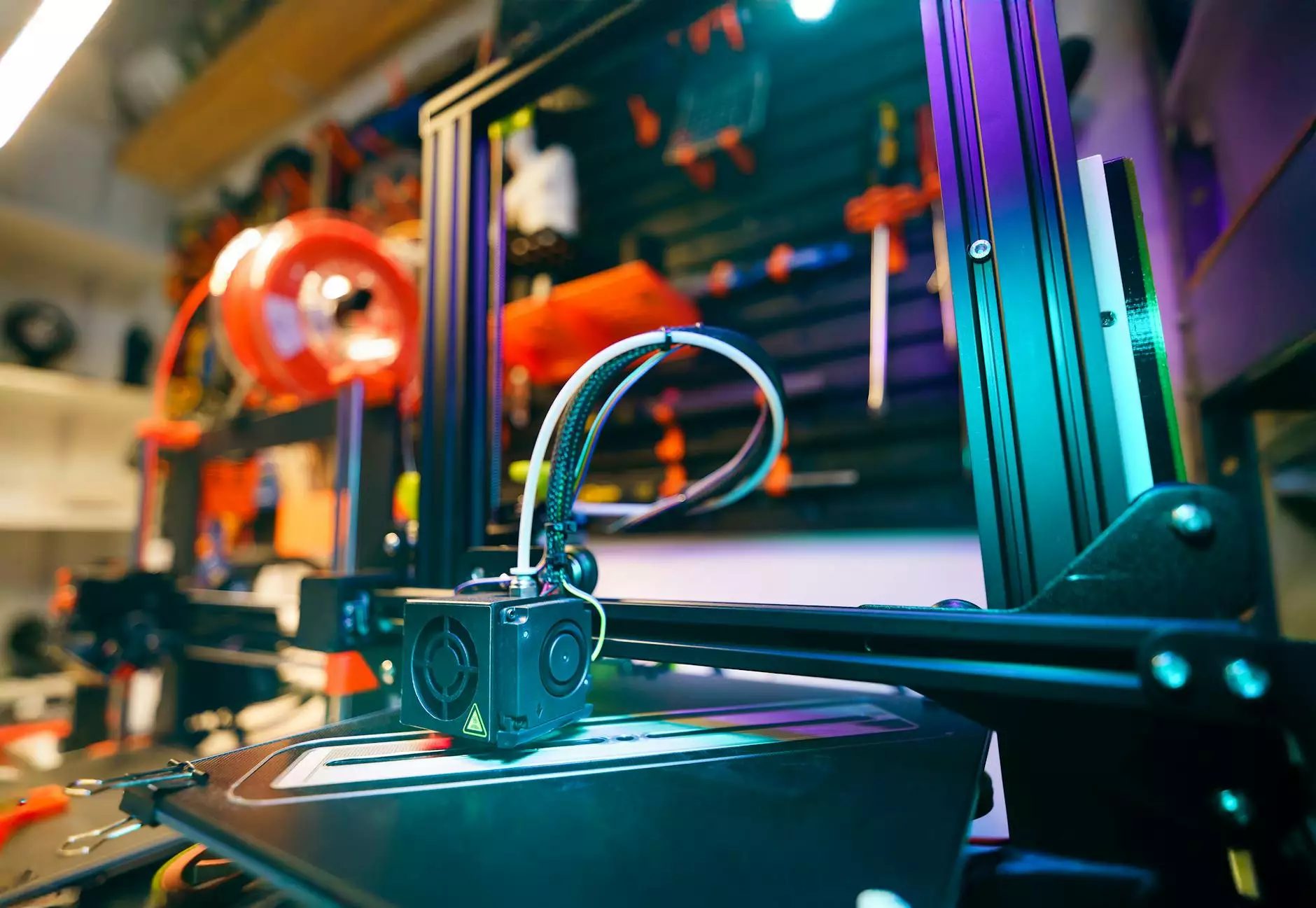Enhancing Business with Rapid Prototyping Services

In today's fast-paced market, companies are under constant pressure to innovate rapidly while maintaining cost efficiency and product quality. One of the most effective ways to achieve this is through rapid prototyping services. This article delves into the transformative impact these services have on businesses, particularly in the metal fabrication sector.
What is Rapid Prototyping?
Rapid prototyping refers to a set of techniques used to quickly fabricate a scale model of a physical part or assembly using three-dimensional computer-aided design (CAD) data. This process is fundamental in transforming an initial concept into a tangible prototype that can be tested and optimized before mass production.
The Importance of Rapid Prototyping in Business
Businesses today are reliant on speed and efficiency to stay ahead of the competition. Implementing rapid prototyping services can significantly enhance product development cycles. Here are several key benefits:
- Faster Time-to-Market: Rapid prototyping allows businesses to develop products quickly, reducing the time from idea to market launch.
- Improved Product Quality: Testing prototypes at an early stage helps in identifying issues, leading to improved quality in the final product.
- Cost Efficiency: Early detection of design flaws mitigates costly revisions and facilitates better resource allocation.
- Enhanced Collaboration: Prototypes act as a great communication tool among stakeholders, including designers, engineers, and clients.
- Informed Decision-Making: By visualizing concepts, businesses can make better-informed decisions on product design and functionality.
Applications of Rapid Prototyping Services in Metal Fabrication
The metal fabrication industry has been revolutionized by rapid prototyping services. Here are a few notable applications:
1. Custom Tooling and Dies
In the metal fabrication sector, the design of tools and dies is critical. With rapid prototyping, manufacturers can create precise, customized tooling designs that meet stringent specifications. This not only enhances the accuracy of the manufacturing process but also contributes to quicker turnaround times.
2. Complex Geometries
Traditional manufacturing processes can struggle with intricate designs. However, rapid prototyping allows for the creation of complex geometries that would be challenging or impossible to achieve with conventional methods. This capability opens up new avenues for innovative product design.
3. Functional Testing and Validation
Prototyping facilitates functional testing, which is pivotal in validating the design and functionality of metal components. Rapid prototyping services enable businesses to create functional models that can be subjected to operational testing, ensuring reliability before the final production stage.
Choosing the Right Rapid Prototyping Services
When selecting a service provider for rapid prototyping, consider the following factors:
- Experience and Expertise: Look for companies that have a proven track record in the metal fabrication industry.
- Technology and Capabilities: Ensure the provider uses advanced technologies that suit your specific prototyping needs, such as 3D printing, CNC machining, or injection molding.
- Material Selection: Evaluate the range of materials offered for prototypes, ensuring they can provide the right options for your projects.
- Lead Times: Timely delivery is crucial; inquire about the provider's turnaround times to ensure they align with your project schedules.
- Customer Support: Effective communication and support throughout the prototyping process are essential to resolving any potential issues quickly.
Case Studies: Success Stories in Rapid Prototyping
Numerous companies have leveraged rapid prototyping services to achieve remarkable success. Here are a couple of case studies that exemplify this:
Case Study 1: Innovative Tooling at XYZ Metalworks
XYZ Metalworks implemented rapid prototyping to develop a new line of custom dies. By creating prototypes using advanced 3D printing techniques, they were able to test and refine their designs before full-scale production, resulting in a 30% reduction in production costs and a 50% decrease in lead times. This allowed them to respond faster to customer demands and improve customer satisfaction.
Case Study 2: Enhancing Product Design at ABC Manufacturing
ABC Manufacturing engaged in rapid prototyping to enhance their product development process. By creating functional prototypes, they identified critical design flaws early in the development phase, leading to a 40% increase in product reliability. This proactive approach positioned them as market leaders, as they consistently delivered innovative and dependable products.
Future Trends in Rapid Prototyping Services
The future of rapid prototyping services is evolving at an unprecedented pace, driven by advancements in technology and changing market demands. Here are some trends to watch:
1. Advanced Materials
The development of new materials, such as composites and bio-materials, will expand the capabilities of rapid prototyping. These materials will enable even more robust and versatile prototypes, tailored for specialized applications.
2. Integration of AI and Automation
Artificial intelligence and automation are set to play significant roles in refining prototyping workflows. Predictive analytics can optimize designs and streamline the decision-making process, ultimately leading to higher efficiency and accuracy.
3. On-Demand Manufacturing
The rise of on-demand manufacturing will make rapid prototyping an integral part of supply chain logistics. Businesses will be able to produce prototypes and final products as needed, reducing waste and inventory costs.
Conclusion: The Strategic Advantage of Rapid Prototyping Services
In conclusion, rapid prototyping services present an invaluable strategic advantage for businesses, especially in sectors like metal fabrication. By reducing time to market, improving product quality, and enhancing collaboration, these services pave the way for greater innovation and competitiveness in today’s dynamic economy. Investing in rapid prototyping is not just a trend but a critical step towards sustained business success and leadership in the industry.
For companies seeking to embrace the future of product development, exploring the offerings at DeepMould.net can unlock unparalleled opportunities to realize their vision through rapid prototyping. The era of innovation is here — are you ready to take the leap?








